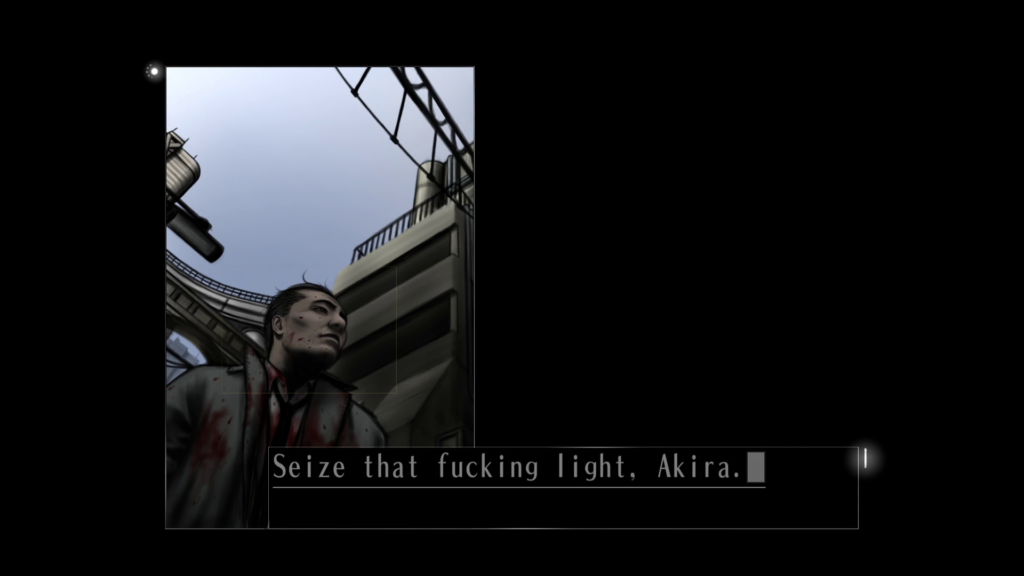The “truth” of Kamui as an evil serial killer withers away behind the “facts” of Kamui as youth, change, and hope, “the personification of the end of the millennium.” He is like Batman, but instead of a billionaire who wrings his hands over killing, he is the people, always kills his enemies, and owns nothing. The identity marks Akira and Tokio, and so the player who is meant to imagine themself in their shoes, as an oppressed subject like the second Kamui but one with liberatory potential in solidarity with the people the savior Kamui has touched and inspired. The player is encouraged to enter their own name for Akira: when Kusabi says to seize that fucking light, he addresses the player.

The state murders, silences, and slanders a civilian in 1979 and then dialectically, unintentionally empower this ultimate victim as a “holy hunter” out to execute the same old men who stole his eyes and so kill the past they embody to give birth to the light. Destruction of Uehara leads to the creation of the Kamui idea that rebounds against Uminosuke and Nezu. It is the process Sartre, in the preface to Frantz Fanon’s The Wretched of the Earth, describes leading to violence among colonized people: “[Subjugated people] are trapped between our [i.e. imperialists’] guns, which are pointing at them, and those frightening instincts, those murderous impulses, that emerge from the bottom of their hearts and that they don’t always recognize. For it is not first of all their violence, it is ours, on the rebound, that grows and tears them apart” (lii).
The Kamui of The Silver Case is possibly a “criminal psychopath,” but among a cast replete with them, he is transformative, aspirational: “I feel like he set the bar for what we would call ‘perfection’ higher than we would ever have been able to.” Akira pursues this perfection to seize that fucking light. Similarly, for Sumio, Ayame becomes an ideal to literally, physically pursue. As I allude to in my video “THE INTERACTIVE ABSURD,” The 25th Ward recasts the incessant running of Flower, Sun, and Rain as a pursuit of Ayame, a perfection Sumio will never reach: “Ayame… I’ll keep running. Forever, until I can touch you.” It is fitting, then, that an explanation for who Kamui/Ayame is and means must itself be amorphous and changing, the contours clear but impossible to pin down.